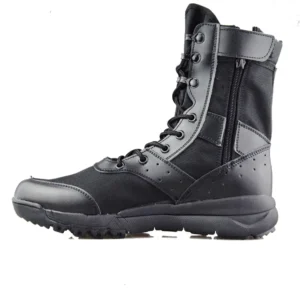Zinc: The Vital Immune Booster for Men’s Health
$69.00
Boost Your Immune System: Unlock the Power of Zinc Supplements for Men’s Health. Discover how zinc supports a robust immune response, promoting overall well-being and optimal vitality.
Description
Zinc Supplements for Immune Health in Men: A Comprehensive Review
Introduction
Zinc is an essential mineral that plays a vital role in immune function, among other bodily processes. In men, zinc is particularly important for maintaining a robust immune system, as it is involved in the production and activation of immune cells. Research has shown that zinc deficiency can lead to weakened immunity and increased susceptibility to infections.
This article provides an in-depth review of the role of zinc in immune health, the potential benefits of zinc supplements for men, and the optimal dosage and safety considerations.
H1: The Role of Zinc in Immune Function
H2: Immune Cell Production and Activation
Zinc is essential for the production and activation of various immune cells, including white blood cells, macrophages, and natural killer cells. These cells play a crucial role in recognizing and destroying pathogens, such as bacteria, viruses, and parasites.
- White blood cells: Zinc is necessary for the differentiation and maturation of white blood cells, including neutrophils, lymphocytes, and macrophages. Neutrophils and macrophages engulf and destroy foreign particles, while lymphocytes produce antibodies and orchestrate the immune response.
- Macrophages: Zinc activates macrophages, enhancing their ability to phagocytose and destroy pathogens. Macrophages also release cytokines, which are signaling molecules that recruit other immune cells to the site of infection.
- Natural killer cells: Zinc promotes the activation and cytotoxicity of natural killer cells, which are responsible for killing infected or cancerous cells.
H2: Barrier Function and Inflammation Reduction
Zinc also plays a role in maintaining the integrity of physical barriers that protect the body from infection.
- Skin and mucosal barriers: Zinc supports the production of keratin, a protein that forms a protective barrier in the skin and mucous membranes. This barrier helps prevent pathogens from entering the body.
- Inflammation reduction: Zinc has anti-inflammatory properties and can suppress the production of pro-inflammatory cytokines. Excessive inflammation can damage immune cells and tissues, compromising immune function.
H3: Zinc Deficiency and Immune Impairment
Zinc deficiency can significantly impair immune function, increasing the risk of infections.
- Reduced immune cell production: Zinc deficiency leads to a decrease in the number and activity of immune cells, such as white blood cells and macrophages.
- Weakened immune response: Zinc deficiency compromises the ability of immune cells to recognize and destroy pathogens effectively.
- Increased susceptibility to infections: Zinc deficiency has been linked to an increased risk of infections, including upper respiratory tract infections, pneumonia, and urinary tract infections.
H1: Benefits of Zinc Supplements for Immune Health in Men
H2: Improved Immune Function
Research suggests that zinc supplements can enhance immune function in men, particularly in individuals with zinc deficiency.
- Increased white blood cell count: Zinc supplementation has been shown to increase the number and activity of white blood cells, improving the body’s ability to fight off infections.
- Enhanced phagocytic capacity: Zinc supplements can improve the phagocytic capacity of macrophages, increasing their ability to engulf and destroy pathogens.
- Reduced inflammation: Zinc supplementation may reduce inflammation, which can contribute to improved immune function and overall health.
H2: Reduced Risk of Infections
Zinc supplements have been found to reduce the risk of infections in men, both in healthy individuals and those with compromised immune systems.
- Upper respiratory tract infections: Zinc supplements have been shown to reduce the duration and severity of upper respiratory tract infections, such as the common cold and influenza.
- Pneumonia: Zinc supplementation has been associated with a reduced risk of pneumonia in older men and those with chronic lung diseases.
- Urinary tract infections: Zinc supplements may help prevent urinary tract infections, particularly in men with recurrent infections.
H1: Optimal Dosage and Safety Considerations
H2: Recommended Intake
The recommended daily intake of zinc for adult men is 11 mg. For optimal immune health, some experts recommend consuming 15-25 mg of zinc per day.
H2: Safety Considerations
Zinc supplements are generally well-tolerated at recommended doses. However, excessive zinc intake can cause side effects, such as nausea, vomiting, abdominal pain, and headache.
- Upper intake level: The upper intake level for zinc is 40 mg per day. Consuming more than this amount can increase the risk of side effects and interfere with the absorption of other minerals, such as copper.
- Interactions with other supplements: Zinc can interact with certain medications and supplements, such as antibiotics and antacids. It is important to inform your healthcare provider about any supplements or medications you are taking before starting zinc supplements.
H3: Food Sources of Zinc
Zinc can be obtained from various food sources, including:
- Red meat (beef, lamb)
- Shellfish (oysters, crab)
- Beans and lentils
- Nuts and seeds
- Whole grains
Conclusion
Zinc plays a crucial role in immune health in men. Zinc deficiency can impair immune function, increasing the risk of infections. Zinc supplements can enhance immune function and reduce the risk of infections, particularly in individuals with zinc deficiency.
While zinc supplements are generally safe at recommended doses, it is important to be aware of the potential side effects and interactions. It is always advisable to consult a healthcare professional before taking zinc supplements or making any significant dietary changes.
By maintaining an adequate zinc intake, men can support their immune health and overall well-being.





